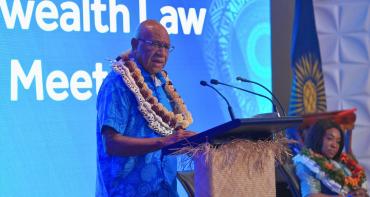The Commonwealth is assisting Guyana to create the regulations, policies and legislation it needs for a new petroleum industry that could inject billions into its economy.

The Commonwealth is assisting Guyana to create the regulations, policies and legislation it needs for a new petroleum industry that could inject billions into its economy.
Guyana is set to become a significant petroleum producer with proven reserves in excess of 3.2 billion barrels. The Commonwealth has been working with Guyana’s Ministries of Natural Resources and Finance to effectively manage this resource.
The first phase of the petroleum production is due to begin in 2020 with an estimated 450 million barrels. A suite of laws, frameworks and policies, drafted with assistance from the Commonwealth, is being reviewed by the government to regulate it.
Daniel Wilde, who is leading the project for the Commonwealth, said these laws and policies will govern the exploration and production of crude oil and natural gas, the taxation of the petroleum industry and manage the revenue that comes from it.
“Guyana is determined to ensure that the petroleum industry contributes to sustainable economic and social development for the country,” said Dr Wilde.
He explained that large and volatile petroleum revenues can lead to unstable and inefficient public spending and a loss of economic competitiveness.
“Petroleum revenues are finite and can lead to an unsustainable increase in public spending and unequal distribution of wealth across generations. We are helping the government to ensure that petroleum revenues are paid into a special Natural Resource Fund, allowing funds to be transparently managed according to the Santiago Principles, which are good governance values endorsed by many of the world’s leading sovereign wealth funds. The Government will then only withdraw and spend an economically and fiscally sustainable amount from the fund.”
Once a Natural Resource Fund is in place, public spending will not be linked to volatile petroleum revenues. The amount of public spending financed by petroleum revenues would not drive up the value of Guyana’s currency, cause inflation or a loss of economic competitiveness. The fund will also ensure that a significant amount of revenue will be invested for future generations after petroleum production has ceased.
Dr Wilde recently made a presentation on the design of the Fund to Guyana’s cabinet. “What is evident from my engagement in Guyana is that there is now a clear understanding and a lot of support for their Natural Resource Fund among a broad range of stakeholders,” he told the ministers.



